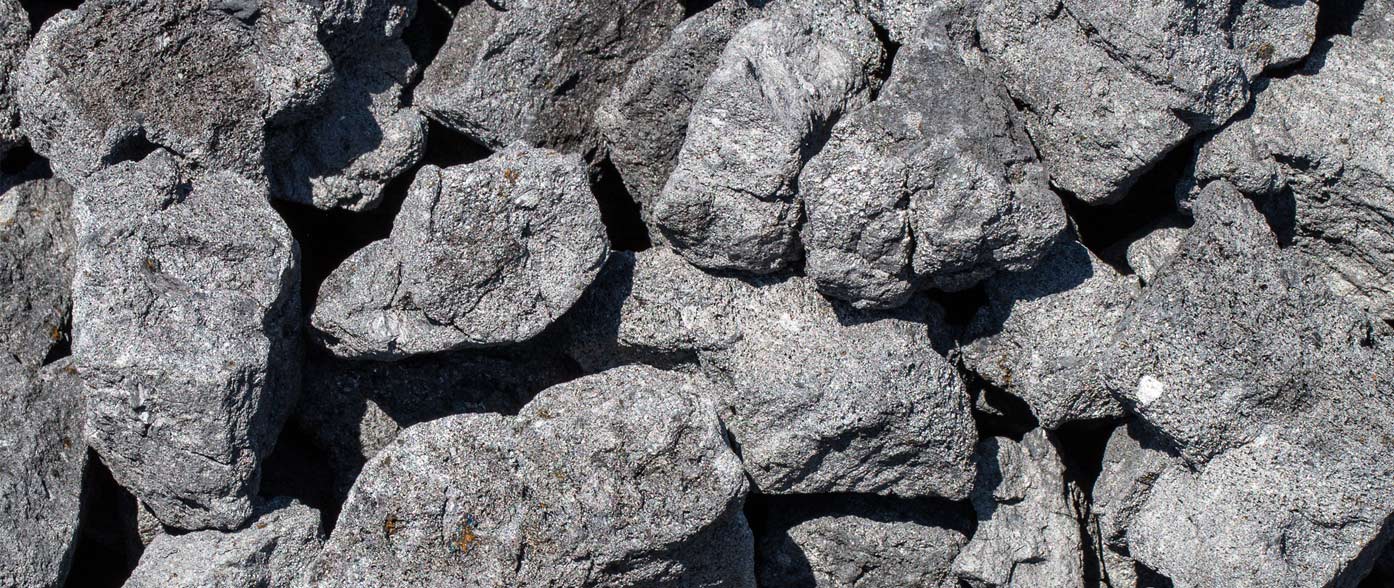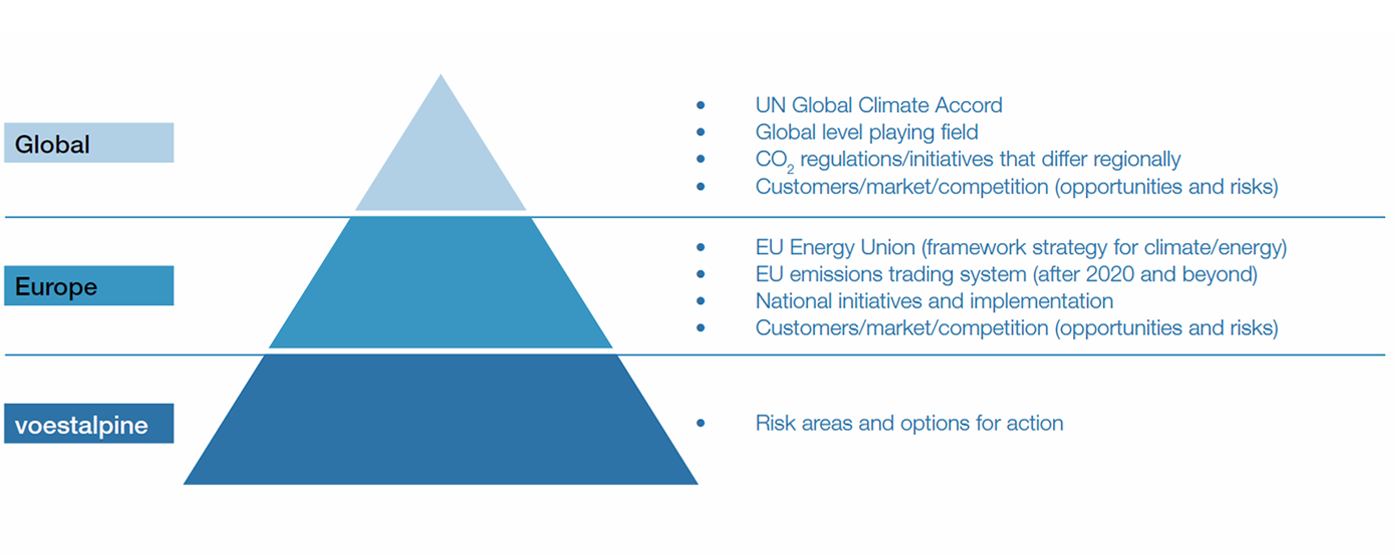
Coke
Overview

At a global level, international organizations are working on various regulations and initiatives regarding climate protection, the most important of which is the UN Global Climate Accord, which was adopted in Paris in 2015. The further development and concretization of these initiatives will show in the medium-term whether they will actually create a level playing field with regard to climate protection regulations that are binding for all regions.
In the European Union, the focus is on the political configuration of the European Energy Union. This comprehensive package represents the long-term framework strategy for energy and climate policy, innovation, and competition. The EU is pursuing ambitious plans that include complete decarbonization by the middle of this century. The associated CO2-free economic system presents enormous challenges for energy-intensive industries such as the steel industry. After all, today the production of steel is still largely based on fossil, i.e., carbonaceous, raw materials and the use of fossil fuels.
From the steel industry’s perspective, the reform of the emissions trading system for the period from 2021 to 2030 (and beyond) is of fundamental significance. The decisive factor, however, will be to enable industry to actually transition to carbon-free production and to facilitate and support the process. This affects particularly the economic and technological capabilities and the availability of the required amount of energy at affordable prices and with a high degree of supply reliability.
These political decisions and their national implementation impact voestalpine at various levels. On one hand, they affect important customer industries and their development (e.g., energy, mobility) and on the other hand, they impact the markets for our raw materials. And finally, they entail new legal and formal requirements, for example, in the area of the life cycle assessment.
Considering the far-reaching importance of energy and climate policy for our long-term technology, investments, and location-related decisions, we are devoting a great deal of attention to this topic at all levels of the Group. Using a holistic approach, we will be investigating the risks involved in various scenarios and developing a wide range of options for action to enable us to deal with changes proactively.
Share page